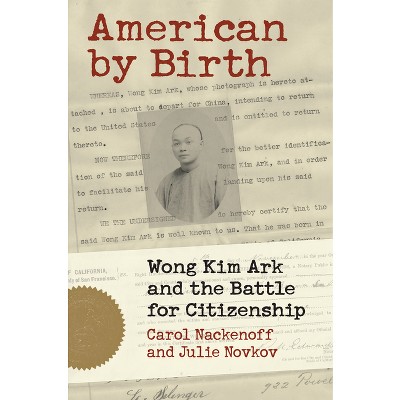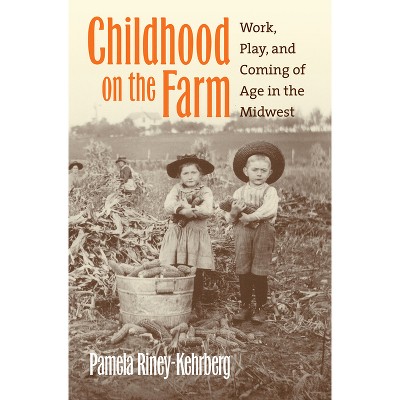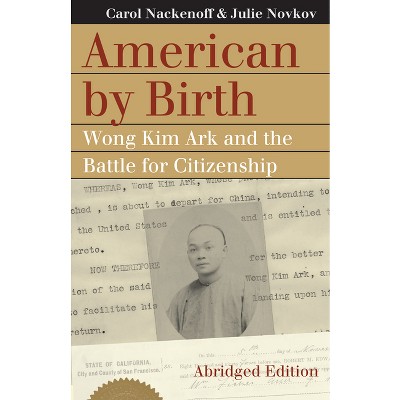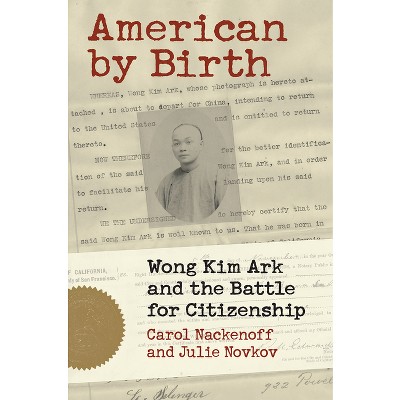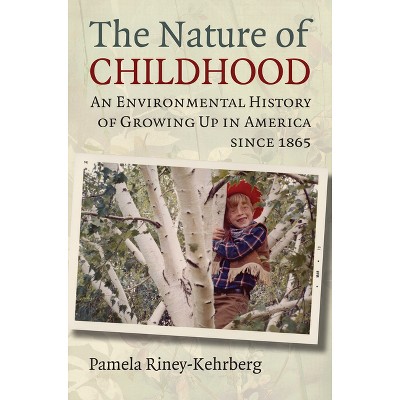Sacrificing Childhood - (Modern War Studies) by Julie K Degraffenried (Hardcover)

About this item
Highlights
- During the Soviet Union's Great Patriotic War, from 1941 to 1945, as many as 24 million of its citizens died.
- Author(s): Julie K Degraffenried
- 264 Pages
- History, Military
- Series Name: Modern War Studies
Description
About the Book
The story of how Soviet children experienced the horrors of the Great Patriotic War, both as victims and as heroes who helped make victory possible.Book Synopsis
During the Soviet Union's Great Patriotic War, from 1941 to 1945, as many as 24 million of its citizens died. 14 million were children ages fourteen or younger. And for those who survived, the suffering was far from over. The prewar Stalinist vision of a "happy childhood" nurtured by a paternal, loving state had given way, out of necessity. What replaced it--the dictate that children be prepared to sacrifice everything, including childhood itself--created a generation all too familiar with deprivation, violence, and death. The experience of these children, and the role of the state in shaping their narrative, are the subject of this book, which fills in a critical but neglected chapter in the Soviet story and in the history of World War II. In Sacrificing Childhood, Julie deGraffenried chronicles the lives of the Soviet wartime children and the uses to which they were put--not just as combatants or workers in factories and collective farms, but also as fodder for propaganda, their plight a proof of the enemy's depredations. Not all Soviet children lived through the war in the same way; but in the circumstances of a child in occupied Belarus or in the Leningrad blockade, a young deportee in Siberia or evacuee in Uzbekistan, deGraffenried finds common threads that distinguish the child's experience of war from the adult's. The state's expectations, however, were the same for all children, as we see here in children's mass media and literature and the communications of party organizations and institutions, most notably the Young Pioneers, whose relentless wartime activities made them ideal for the purposes of propaganda. The first in-depth study of where Soviet children fit into the history of the war, Sacrificing Childhood also offers an unprecedented view of the state's changing expectations for its children, and how this figured in the nature and direction of post-war Soviet society.Review Quotes
"At once a social history of children's experiences of the war and a cultural and political history of the way the state's expectations of children changed in the wake of the German invasion. . . . In addition, [deGraffenried] advances an argument that reverberates throughout the book, names, that the Soviet state "orphaned" Soviet children, both literally and figuratively, abandoning them in their moment of need and bringing an end to their 'childhood innocence.'--Journal of Modern History
"deGraffenried not only gives serious attention to economic history and to demographic facts, but also does not shy away from exploring the psychological cost of this war on the generation of war children. All the while, she also engages in serious cultural analysis, demonstrating how combining a variety of approaches helps historical understanding."--Slavonic and East European Review
"[deGraffenried] clearly lays out her main arguments and provides fascinating context for the interplay between child and state. . . . Her book is worth reading whether one wishes to gain a deeper understanding regarding the Soviet perspective of World War II in general, historical issues surrounding Soviet children specifically, or even the origins of modern global children's rights movements."--H-Net Reviews
"Julie M. deGraffenried sets out to make two contributions to the historiography of childhood in the Soviet Union. . . to grant children's experiences in World War II their due [and] to define the Soviet state's policies on children as "sacrificing childhood." She accomplishes both goals."--Soviet and Post-Soviet Review
"DeGraffenried examines the experiences of children in the war, how they were mobilized for the war work, and various forms of propaganda aimed at children. She seasons her narrative with first hand accounts, anecdotes, and observations of children's experiences, some written during the war and some in memoirs and reminiscences afterwards. DeGraffenried touches on children in combat as soldiers and partisans, and as spies, subjects which are in need of ore research. This is an outstanding overview of the horrific impact of the war on the children of the USSR."--New York Military Affairs Symposium
"A compelling glimpse into the lives of Soviet children during WWII. A welcome addition to the developing literature on childhood in Russian and Soviet history."--Choice
"An engaging and heartrending account of Soviet children at war that reminds us of the conflict's horror and brutality. deGraffenried brings to life the small people whose heroism and endurance simply beggars belief. This book will make an important contribution to both childhood studies and the emerging social history of the Soviet war effort."--
Olga Kucherenko, author of Little Soldiers: How Soviet Children Went to War, 1941-1945
"Charting the effects of World War II on Soviet children, Sacrificing Childhood establishes the war as a rupture in both individual lives and Soviet conceptions of childhood. Amply documenting children's contributions to the war effort--and the representation of children's "heroic" self-sacrifice in the Soviet media--deGraffenried never loses sight of the suffering and hardship that defined the children's war."--Lisa A. Kirschenbaum, author of Small Comrades: Revolutionizing Childhood in Soviet Russia, 1917-1932
"Relying on an impressive array of visual, written, and oral records, deGraffenried chronicles how in the Soviet Union during World War II a paradigm of "sacrificing childhood" supplanted the "happy childhood" of the 1930s. In wartime, Soviet children suffered incredibly, and yet, as the state portrayed it and many children understood it, they largely responded not as victims but as active heroes who helped make victory possible. This book adds a moving narrative and brings new perspectives and insights to existing work on Soviet children during the war by Olga Kucherenko and Catriona Kelly."--
Larry E. Holmes, author of Kirov School No. 9: Power, Privilege, and Excellence in the Provinces, 1933-1945
"Julie K. deGraffenried's Sacrificing Childhood is a thoroughly researched, vivid account of how Soviet children experienced the trials and horrors of the 'Great Patriotic War' (1941-1945). Tracing life under occupation and the contributions made by juvenile labor to the war effort, the book also examines the heroic legends, collective values, and commemorative representations that helped child witnesses, and successive generations, make sense of their experience. The book makes an important contribution to an under-researched area of Russian history."--Catriona Kelly, author of Children's World: Growing Up in Russia, 1890-1991






